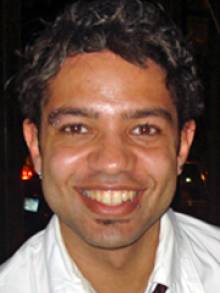Scott Clarke
MPA in Public & Nonprofit Management & Policy
-
2008

Between 2006 and 2007, Scott Clarke (MPA 2008) spent a year working at a youth development organization in South Africa. It wasn’t long, however until he recognized that what he was doing was not addressing the scale of the need he saw in the country. He became aware of what he describes as “tremendous and persistent inequity” and he began asking individuals in positions of influence what they believed the solution might be to overcoming this inequity. Over two years, after he began pursuing his MPA, he spoke with educators, academics, policy makers and business professionals in search of a comprehensive answer. Clarke had noticed the South African “government’s lack of success in improving the quality of education despite having spent huge sums of money.” However, Clarke “also noticed that NGOs and other private actors were having successes.” So his driving question became, “how to marry those successes to the sustainability that policy level support could bring.” In contemplating this quandary, the idea for Amandla Development was born.
Founded in 2008, Amandla Development works to empower South African youth with equal access to quality education opportunities. It does this by providing capacity building services to effective education-based grassroots organizations in order to maximize their impact. “A fundamental principle behind Amandla,” says Clarke, “is that there are already plenty of good ideas on the ground and that the shortage is in structures to manage those ideas.”
In developing the basis for his organization, Clarke embarked on a lengthy period of research during which he interviewed roughly “100 individuals and organizations in the sector in South Africa.” From that research he produced white papers outlining both his findings as well as specific actions that Amandla could take to “equip and empower” education-based organizations working locally across the country.
Not only was the research Clarke conducted important for setting strategy, but it also helped him establish trust and credibility. “As a foreigner,” Clarke explains, “I was and am extremely aware of how it can seem like I’m saying “Hi, I’m here to fix your country.” So I just met people and soaked up all they had to say about what they actually needed and how they thought about things so that I could partner with them effectively and in a culturally sensitive way.” He has also been studying two of the nation’s official languages so he can communicate with his collaborators “in a way that is comfortable,” he says.
Once Clarke had developed a strategy, he began working “to demonstrate Amandla’s theories on a small scale” and he aims now to get “to a point where Amandla has the capacity to do the bigger things that are its central mission,” such as helping local organizations scale their models to have national impact. On a week to week basis, Clarke works to maintain a balance of spending time executing projects, raising money, and continuing to learn and conduct research. “I really enjoy that I get to blend learning from more than one discipline to think beyond established ideas of how development should be done,” he says. “It allows for substantive interactions with people in varied fields who are passionate about the same things.” The work is “always fresh and always challenging,” he explains.
Sometimes the challenging nature of the work can become overwhelming. Clarke admits to occasionally feeling “self-doubt that I can at a relatively young age really start and run an organization and make a difference in people’s lives.” But when that doubt arises, Clarke goes “back to why I’m doing it, my faith, and [he spends] time with like-minded and encouraging people.”
Surrounding himself with encouraging people keeps Clarke optimistic – and he has high hopes for the organization. “I’d like to see Amandla leading the effort to improve opportunity in South Africa and build a more equal and just society. I’d like Amandla to be a leading voice in the conversation on how to shift the development paradigm to a locally driven one and how philanthropy can be more effective.”
While Clarke envisions Amandla becoming a leading voice, he doesn’t intend for the organization to become institutionalized and last forever. “We are trying to really equip the organizations on the ground that are already building success,” he explains, “and once we’ve truly equipped them and built that local capacity, we really shouldn’t be needed.” His perspective is evolved yet humble. And while surely everyone looks forward to the day when Amandla is actually no longer needed, until that day comes, Clarke will continue to work for “a South Africa in which everyone can access empowering education opportunities leading to equitable development.”